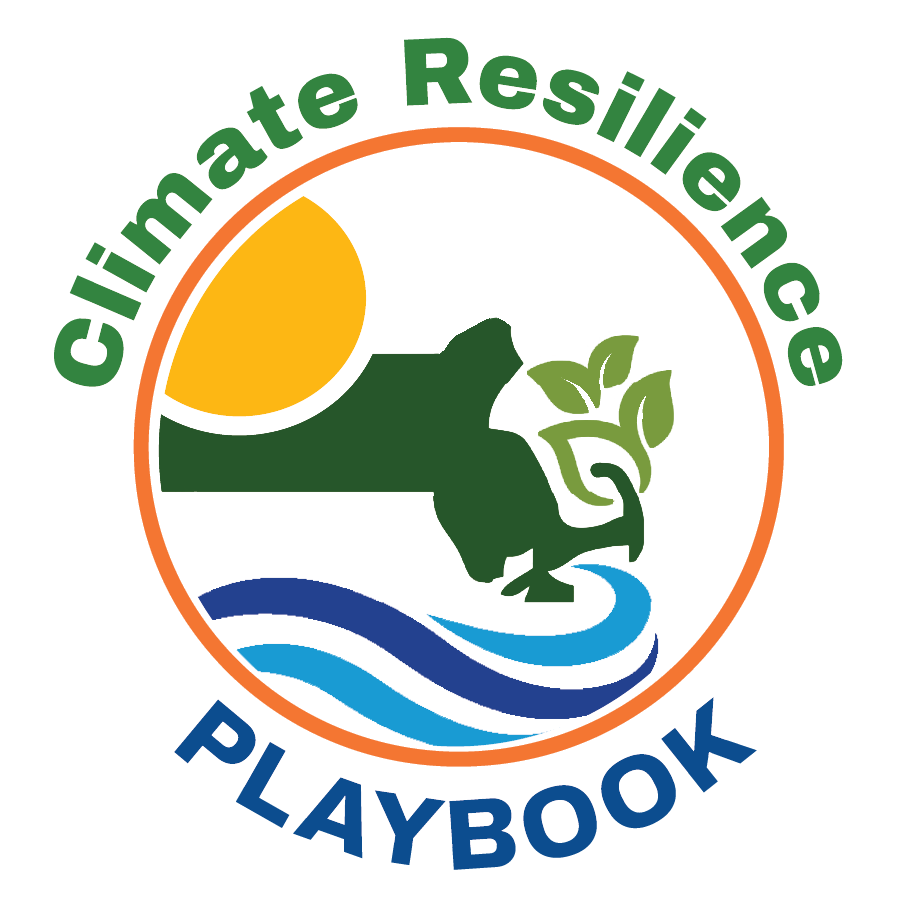
An interactive tool that local planners can use to identify and prioritize resilience actions for their communities
Through our work and collaboration with municipalities, we often hear that municipalities face challenges such as limited staff capacity, technical expertise, and funding to realize climate resilience planning priorities with impactful implementation projects.
The Massachusetts Executive Office of Energy and Environmental Affairs’ Municipal Vulnerability Preparedness (MVP) program, Metropolitan Area Planning Council, and Pioneer Valley Planning Commission are developing a Climate Resilience Playbook to assist communities across Massachusetts with planning and implementing projects, policies, and programs that connect and advance both social and environmental resilience. This project is generously supported by the Barr Foundation.
Get in Touch
We are hosting focus groups and conversations to better understand local government and community resilience priorities throughout the state.
Interested in getting involved or have questions?
Van Du ([email protected]) or
Emma Zehner ([email protected])
Key Features of the Playbook
Implementation Roadmaps
The Playbook will include detailed information and recommendations (e.g., key partners, funding sources, etc.) for how a local government can plan for and implement climate resilience actions of different sizes and types (policy updates, capital improvements, capacity building, etc.).
Collaboration with Community Partners
The Playbook aims to provide project-specific examples and best practices for forming meaningful partnerships with key stakeholders like community-based organizations (CBOs), social service providers, community health centers, and more. Most importantly, the expertise of environmental justice communities, including community members of color, low-income community members, and linguistically isolated community members, must be centered in every effort to address climate change impacts. Further, many partners like universities or nonprofits can help to expand capacity for projects in small communities with limited staff and resources.
Tailored to Local Context
The Playbook will include strategy and actions tailored to the varying local contexts and capacities in Massachusetts (e.g., rural inland communities, coastal Greater Boston cities).
How Will This Tool Be Used?
The Climate Resilience Playbook will be an online, interactive tool that local planners can use to identify and prioritize resilience actions for their communities. Users will be able to search for and filter actions by theme (e.g., infrastructure resilience, community resilience, natural/ecosystem resilience, etc.); project type (e.g., zoning, capital/construction, planning, outreach/engagement, etc.); climate threat (e.g., coastal flooding, extreme heat, etc.); length of project (e.g. less than a year or a multiyear projects) and more!
Email us ([email protected] and [email protected]) to let us know what you’d find useful to include in this Playbook!

Ipswich River flooding
Photo Credit: AdobeStock_21697118
